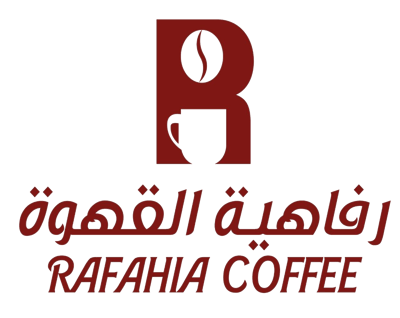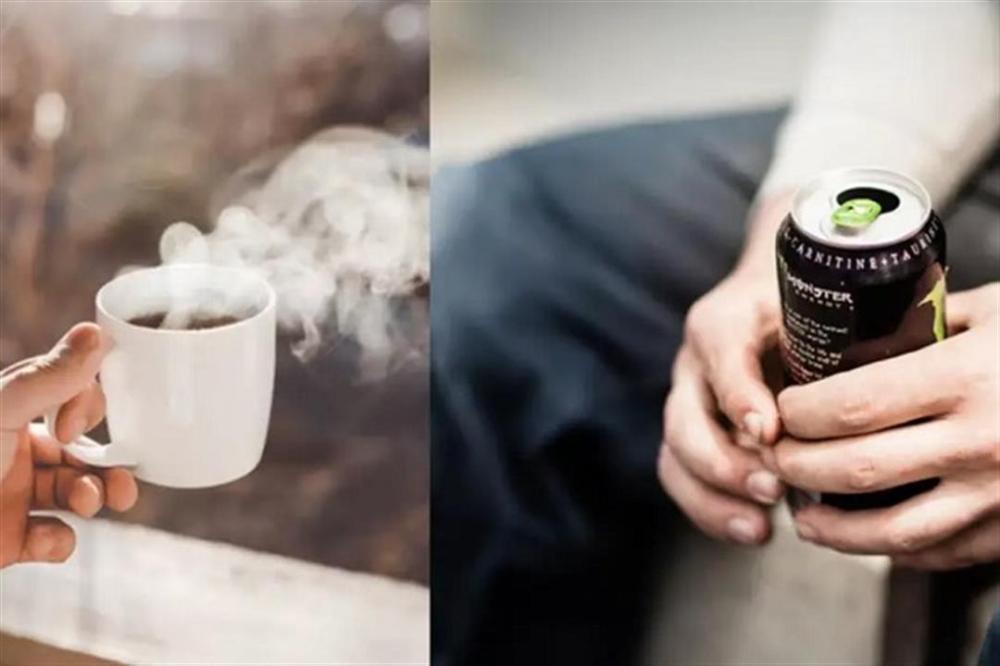In an increasingly fast-paced and demanding world, many are looking for a quick boost of energy and alertness, and coffee or energy drinks are often the primary choices. Coffee, with its rich history and distinctive flavor, is the traditional choice for millions of people, while energy drinks are gaining increasing popularity thanks to their marketing as an instant source of energy. But which is better? Does coffee offer more health benefits? Or do energy drinks provide a stronger boost? In this article, we compare coffee and energy drinks in terms of ingredients, health benefits, risks, taste, cost, and sustainability, offering practical tips for choosing the one that best suits your needs. We also highlight the role of the Rafaat Al-Qahwa store in providing high-quality coffee products in Saudi Arabia to enhance your experience.
Comparison between coffee and energy drinks
1. Ingredients
- Coffee:
- Caffeine: The main ingredient, with a cup of coffee (240 ml) containing 80-100 mg of caffeine on average.
- Antioxidants: Contains polyphenols and chlorogenic acid, which fight inflammation and protect cells.
- Natural Ingredients: Specialty coffee, like that available from the Rafa Coffee Shop, is made from high-quality beans with no artificial additives.
- Optional additives: sugar, milk, or flavorings depend on the user's choice.
- Energy drinks:
- Caffeine: Contains 80-200 mg per can (250-500 ml), sometimes more.
- Additional ingredients: Contains taurine, guarana, B vitamins, and sugar or artificial sweeteners (such as aspartame).
- Artificial additives: Often contain artificial colors, flavors, and preservatives.
- Bottom line: Coffee relies on more natural ingredients, while energy drinks contain a complex mixture of artificial ingredients.
2. Health benefits
- Coffee:
- Boost alertness and focus: Caffeine stimulates the central nervous system, improving mental performance (study in Neuroscience & Biobehavioral Reviews , 2010).
- Reducing the risk of chronic diseases: It is linked to a reduced risk of heart disease ( Circulation , 2015), type 2 diabetes ( Diabetes Care , 2014), and liver disease ( Hepatology , 2017).
- Antioxidants: Protect against inflammation and cell damage ( Journal of Nutrition , 2005).
- Mood improvement: Caffeine increases the release of dopamine and serotonin, which reduces symptoms of depression ( Archives of Internal Medicine , 2011).
- Preparation flexibility: The amount of caffeine can be controlled by choosing decaffeinated coffee or reducing the dose.
- Energy drinks:
- Quick Energy Boost: Caffeine and taurine provide an immediate boost, making it popular among athletes.
- B vitamins: May support metabolism and energy production.
- Improve athletic performance: Guarana and taurine may enhance physical endurance (study in the Journal of Strength and Conditioning Research , 2010).
- Bottom line: Coffee offers long-term health benefits thanks to antioxidants, while energy drinks provide a temporary boost with limited benefits.
3. Health risks
- Coffee:
- Excessive caffeine: Taking more than 400 mg per day may cause insomnia, anxiety, or rapid heartbeat ( American Journal of Clinical Nutrition , 2006).
- Effect on sleep: Caffeine may disrupt sleep if consumed late in the day ( Journal of Clinical Sleep Medicine , 2013).
- Hypertension: A temporary increase in blood pressure, especially in those who are not used to it ( American Journal of Hypertension , 2005).
- Pregnancy: It is recommended that pregnant women limit caffeine to 200 mg per day (WHO).
- Energy drinks:
- High caffeine and sugar: High amounts may lead to jitters, weight gain, or heart problems ( Journal of the American Heart Association , 2019).
- Drug Interactions: Taurine and guarana may interact with anxiety or heart medications.
- Addiction: Artificial sweeteners and high caffeine can cause dependence.
- Children and Teens: Unsafe for children due to high caffeine content (American Academy of Pediatrics, 2011).
- Bottom line: Energy drinks carry greater risks due to artificial ingredients and high caffeine, while coffee is safer when consumed in moderation.
4. Taste and experience
- Coffee:
- It offers a variety of flavors (fruity, floral, chocolate) depending on the source and degree of roasting.
- It can be customized (espresso, filter, French press) with additions such as milk or flavorings.
- A rich cultural and social experience, especially in Saudi Arabia, where coffee is a symbol of hospitality.
- Example: Otavo beans from Luxury Coffee offer citrus and caramel flavors.
- Energy drinks:
- Artificial flavors (such as berry, citrus, or tropical) are often overly sweet.
- A less diverse experience associated with quick consumption.
- May leave a chemical or bitter taste due to artificial sweeteners.
- Bottom line: Coffee provides a more varied and satisfying taste experience, while energy drinks focus more on stimulation than enjoyment.
5. Cost
- Coffee:
- Home cost: Specialty coffee beans (250g) range from 50-150 SAR, producing about 15-20 cups (about 3-7 per cup).
- Cost in cafes: 10-20 Saudi riyals per cup.
- Economical in the long run: Especially with high-quality beans from the Luxury Coffee Shop.
- Energy drinks:
- Cost: One box (250-500 ml) ranges from 8-15 Saudi riyals.
- Less economical: Daily consumption may cost more due to the high price per pack.
- Bottom line: Coffee is more economical, especially if prepared at home, while energy drinks are relatively expensive.
6. Sustainability and Environment
- Coffee:
- Many specialty roasters support sustainable agriculture (such as Fair Trade or Rainforest Alliance).
- Organic beans or recyclable packaging can be used.
- Example: Luxury Coffee offers Otavo beans from sustainable farms.
- Energy drinks:
- They rely on aluminum or plastic containers, which increases waste.
- The production of synthetic ingredients (such as taurine) has a higher carbon footprint.
- Bottom line: Coffee is more sustainable thanks to organic farming options and eco-friendly packaging.
7. Uses and occasions
- Coffee:
- Perfect for morning, work, or social gatherings.
- Suitable for all ages when consumed in moderation.
- Flexible (espresso, drip coffee, cold brew).
- Energy drinks:
- Intended for athletes, students, or peak times (such as long workouts or studying).
- Not suitable for children or pregnant women due to high caffeine content.
- Conclusion: Coffee is more versatile and suitable for everyday use, while energy drinks are intended for specific needs.
Which is better: coffee or energy drinks?
The choice depends on your goals, lifestyle, and health considerations:
- Choose coffee if:
- Prefer natural flavor and cultural experience.
- Looking for long-term health benefits (antioxidants, reduced disease risk).
- You want an economical and sustainable option.
- You need flexibility in preparation (espresso, filter, cold coffee).
- Choose energy drinks if:
- Need an instant energy boost for intense workouts or tasks.
- You don't care about flavor and prefer convenience (opening a can vs. making coffee).
- Aims for short-term stimulation.
General Recommendation: Coffee is the best choice for most people due to its health benefits, variety of flavors, and low cost. However, energy drinks can be used in moderation in specific situations, with caution in overindulging.
Tips for enjoying coffee in a healthy way
- Stick to the safe amount: Do not exceed 400 mg of caffeine per day (3-5 cups of coffee).
- Choose high-quality coffee: such as Otavo beans or capsules from the Luxury Coffee Shop for rich flavors and high antioxidants.
- Avoid unhealthy additives: Reduce sugar and cream, and use alternatives like plant-based milk or maple syrup.
- Timing of drinking: Drink coffee in the morning or midday to avoid affecting sleep.
- Try Decaf: If you're sensitive to caffeine, choose options like Otavo Decaf capsules.
Tips for Using Energy Drinks Safely
- Limit consumption: Do not exceed one can (250-500 ml) per day.
- Read the ingredients: Avoid drinks that are high in sugar or contain excessive artificial sweeteners.
- Consult a doctor: If you have heart disease, high blood pressure, or are pregnant.
- Avoid mixing with alcohol: This combination can be dangerous to the heart.
The role of the luxury coffee shop in enhancing the coffee experience
Rafaat Al-Qahwa is your ideal destination in Saudi Arabia for specialty coffee products that outperform energy drinks in terms of flavor and health:
- High-quality coffee beans: such as Otavo beans from Ecuador and other high-quality coffees, with a variety of flavors.
- Coffee Capsules: Includes Ottavo capsules (Espresso, Decaf, Fortissimo) compatible with Nespresso machines.
- Professional coffee machines: such as Ariete Moderna and Fetco to prepare perfect coffee.
- Preparation Tools: Coffee scales, drippers, and pouring pitchers to ensure brewing accuracy.
- Training services: Courses to teach baristas and café owners how to prepare specialty coffee.
- Fast delivery: Shipping to Riyadh, Jeddah, Dammam, and all over the Kingdom.
Finally, coffee and energy drinks both provide an energy boost, but they differ significantly in ingredients, benefits, and risks. Coffee excels thanks to its natural flavors, long-lasting health benefits, and low cost, making it the ideal choice for everyday use. On the other hand, energy drinks provide a quick boost but carry greater health risks due to their high caffeine content and artificial ingredients. For coffee lovers in Saudi Arabia, the Rafah Coffee store offers a wide range of beans, capsules, and tools to prepare specialty coffee that elevates your experience. Choose wisely and enjoy a beverage that suits your lifestyle and health.
Want to enjoy a healthy and delicious cup of coffee that's superior to energy drinks? Shop now at Rafah Coffee for specialty coffee beans and capsules, along with machines and brewing tools to suit your needs. Take advantage of exclusive offers and fast delivery throughout Saudi Arabia!

